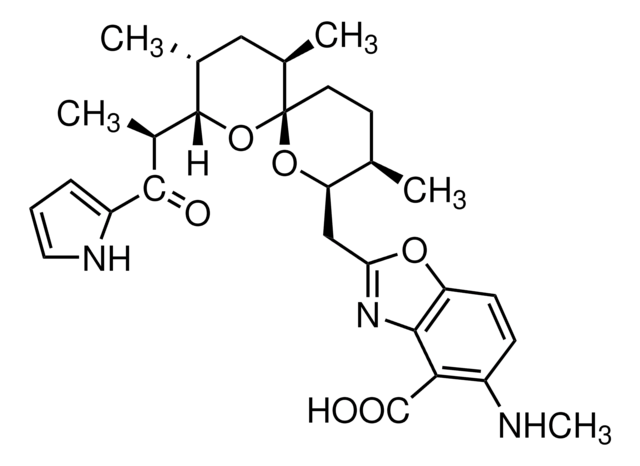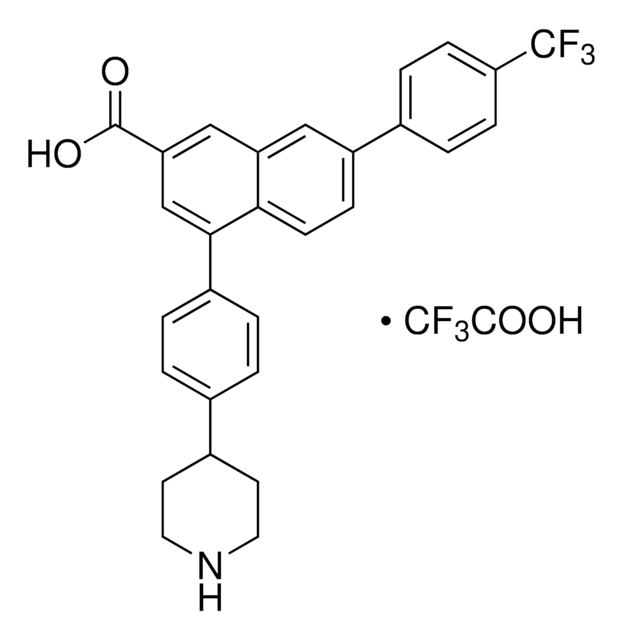M5571
Miltefosine
≥98% (perchloric acid titration)
Synonym(e):
Choline hexadecyl phosphate, HePC, Hexadecyl phosphocholine
About This Item
Empfohlene Produkte
Biologische Quelle
synthetic (organic)
Beschreibung
zwitterionic
Assay
≥98% (perchloric acid titration)
Form
powder
Löslichkeit
H2O: 10 mg/mL, clear, colorless
Funktionelle Gruppe
phospholipid
Lipid-Typ
phospholipids
Lagertemp.
room temp
SMILES String
[O-]P(OCC[N+](C)(C)C)(OCCCCCCCCCCCCCCCC)=O
InChI
1S/C21H46NO4P/c1-5-6-7-8-9-10-11-12-13-14-15-16-17-18-20-25-27(23,24)26-21-19-22(2,3)4/h5-21H2,1-4H3
InChIKey
PQLXHQMOHUQAKB-UHFFFAOYSA-N
Suchen Sie nach ähnlichen Produkten? Aufrufen Leitfaden zum Produktvergleich
Anwendung
- Easy one-pot synthesis of multifunctionalized indole-pyrrole hybrids as a new class of antileishmanial agents.: This study underlines the necessity for innovative treatments amidst growing resistance to established drugs such as miltefosine which is used as a positive control reference, potentially setting a new direction for antileishmanial drug development (Ciccone et al., 2024).
Biochem./physiol. Wirkung
Signalwort
Danger
H-Sätze
Gefahreneinstufungen
Acute Tox. 3 Oral
Lagerklassenschlüssel
6.1C - Combustible acute toxic Cat.3 / toxic compounds or compounds which causing chronic effects
WGK
WGK 3
Persönliche Schutzausrüstung
dust mask type N95 (US), Eyeshields, Faceshields, Gloves
Analysenzertifikate (COA)
Suchen Sie nach Analysenzertifikate (COA), indem Sie die Lot-/Chargennummer des Produkts eingeben. Lot- und Chargennummern sind auf dem Produktetikett hinter den Wörtern ‘Lot’ oder ‘Batch’ (Lot oder Charge) zu finden.
Besitzen Sie dieses Produkt bereits?
In der Dokumentenbibliothek finden Sie die Dokumentation zu den Produkten, die Sie kürzlich erworben haben.
Kunden haben sich ebenfalls angesehen
Unser Team von Wissenschaftlern verfügt über Erfahrung in allen Forschungsbereichen einschließlich Life Science, Materialwissenschaften, chemischer Synthese, Chromatographie, Analytik und vielen mehr..
Setzen Sie sich mit dem technischen Dienst in Verbindung.









